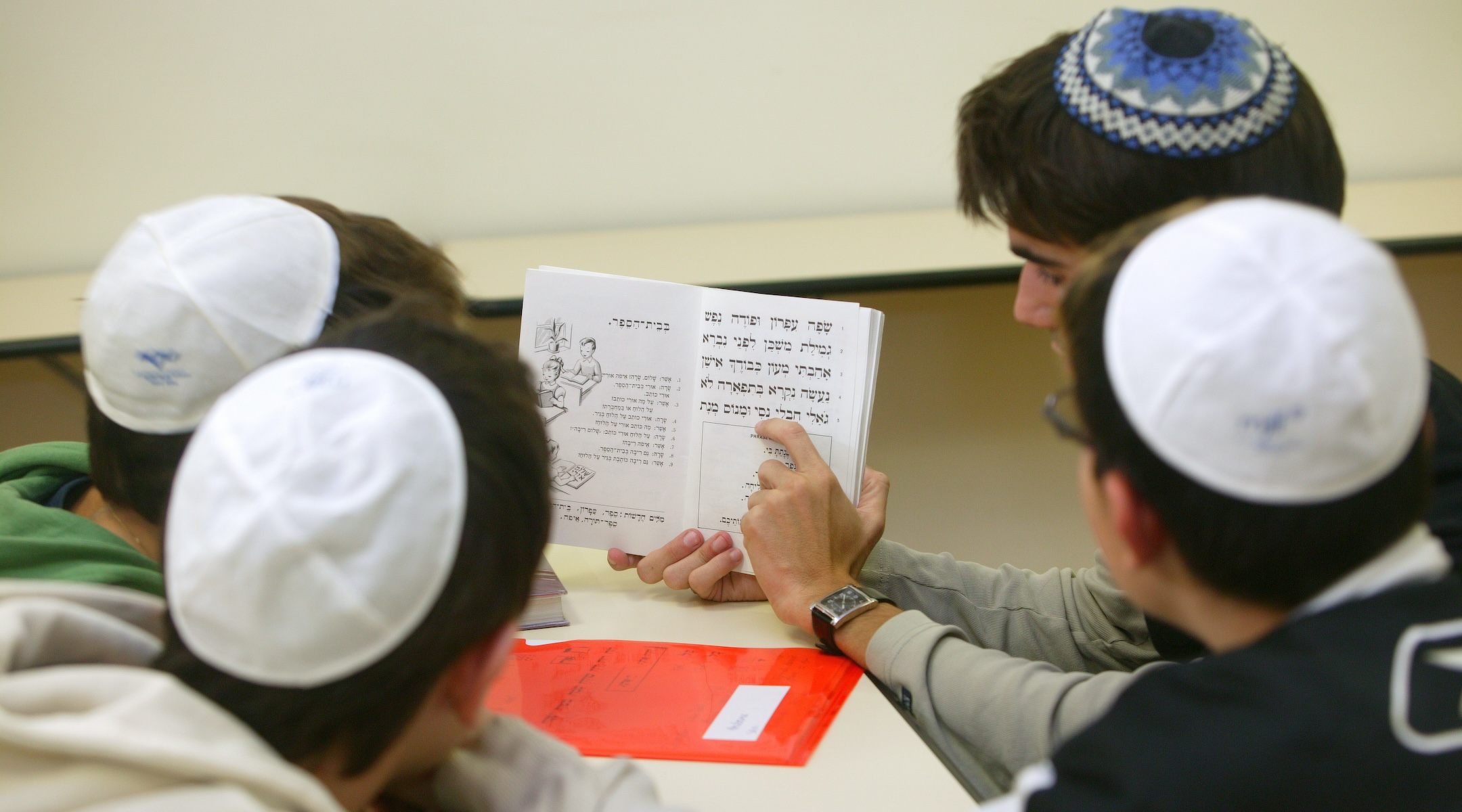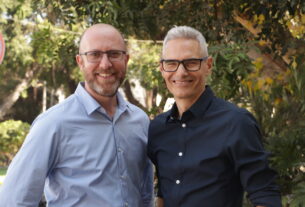This article was produced as part of (JR)’s Teen Journalism Fellowship, a program that works with Jewish teens around the world to report on issues that affect their lives.
I’ve never been very good at math. Or science. During the pandemic, I was online for most of my seventh grade year at my public middle school in Olney, Maryland. My grades in math and science (and English, history, etc.) worsened. Because we didn’t have Sukkot, Pesach, Shavuot and other Jewish holidays off from school, I also had a lot of absences and fell behind in my schoolwork.
In eighth grade, we were back in the classroom, but I still had a lot of absences for the holidays. Despite what my parents and teachers had hoped, being back in person didn’t make my grades better. I needed a change in education, it seemed.
In public school, there wasn’t a lot of support for me in my classes. It was easy for some students to get lost academically and socially in a big school. I don’t think every student was a high priority for their teachers, especially if they were quiet kids. This isn’t meant to say that all public schools are bad, or that the schools I went to were bad — I mean, they were, but that’s not my main point.
My sister went to our local public high school and did very well, but my parents thought that I would fall behind. Toward the end of eighth grade, my mom and I discussed switching to Melvin J. Berman Hebrew Academy in Rockville, Maryland.
Berman is a smaller school (much, much smaller), with roughly 700 kids across 13 grades. The average grade size is 50 compared to 500 at my former public school. At first, I felt negatively about the change. I wasn’t sure how I felt about going to the same school where my mom teaches. Even though I was ambivalent about the decision, I spent the summer trying to catch up on my Hebrew and math to prepare for my freshman year.
I was nervous to start over at a new school with new people, and also a little sad about leaving my friends behind. Other parents told my mom that my old friends looked for me during the freshmen orientation. I didn’t keep in touch afterwards.
The new school would be a brand new beginning for me. I had two goals as I went into 9th grade: socialize more and get better grades. It turns out, I would also learn things about Judaism and myself that I don’t think I would have if I had stayed at public school.
One thing I recently learned about myself is that I am autistic. Around April or May of this year, I was diagnosed, much to my surprise. The rest of my family didn’t seem as surprised. The smallness of the school, I think, made it easier for the teachers and faculty to notice, leading my parents to get me tested a lot in my freshmen and sophomore years. I personally don’t think that I am autistic, even if the people around me do. I also do not think it makes a huge difference to me or to my personality.
Not every small school or Jewish day school is right for kids with learning disabilities. Some large public schools have more funding and resources available for kids with special needs than private schools, and the dual Hebrew-English curriculum can be challenging, as well. It can also be easier to feel left out. In my case, however, it did work.
Early on in ninth grade, I started doing better in English and history, but I was still behind in science and math. And Hebrew and Gemara (a component of the Talmud). I was put in the grade level classes for Hebrew and math, but switched to different teachers a few times at the beginning of the year. In math I started out in grade-level, then moved to the special education math class, then went on to a one-on-one class.
Freshman year, it was difficult to follow along due to my lack of Gemara knowledge and being behind in most of my secular classes. There were points where I felt like I should’ve prepared better before entering ninth grade. Then some of my teachers noticed and began giving me more resources. This took a while to happen, but starting in tenth grade I received the resources I needed including an instructional assistant who takes notes for me during class, reads my tests and administers modified tests.
Learning Gemara and Chumash (Torah) and getting better at Hebrew have made me more observant in my Judaism. I wear my kippah in public more often and have learned how to put my tefillin on better.
But I was glad to be going to a Jewish school and not public school. Especially, when the upper school went on a 10-day trip to Israel during my freshman year in November 2022. The type of camaraderie and general closeness seemed unique. I learned people’s names quicker than I did in middle school, and I also think that more people know who I am at Berman than at the other schools I have been to. Or at least they try talking to me more.
With Berman came a new start with new people. There were more cliques than I expected, based on how my mom described the school, so I mostly hung around the kids who also hadn’t joined any of the cliques.
Being in a special education program can make it harder to talk to kids who aren’t in one. This can make me feel left out sometimes, since I’m not in the same classes as other people, and I am not in any advanced classes. I haven’t been made fun of (at least not that I know of), but other kids have been laughed at during class or mocked. Usually, the teachers don’t do a lot to stop this, which makes it more difficult. Also, the quieter kids don’t usually like participating in some of the social activities, such as the kumzits (a musical gathering Jews participate in).
The smallness and safeness of Berman has made me think more of where I want to go to college. I plan on going to a school where a lot of Berman alumni go so that I won’t start over again with new people.
I enjoy celebrating the holidays without being worried that I’ll be marked absent and will have missing work to complete. It’s nice not to spend the end of Sukkot or Rosh Hashanah catching up on classroom assignments I missed while I was out.
Support the Jewish Telegraphic Agency
Help ensure Jewish news remains accessible to all. Your donation to the Jewish Telegraphic Agency powers the trusted journalism that has connected Jewish communities worldwide for more than 100 years. With your help, (JR) can continue to deliver vital news and insights. Donate today.
The views and opinions expressed in this article are those of the author and do not necessarily reflect the views of (JR) or its parent company, 70 Faces Media.




